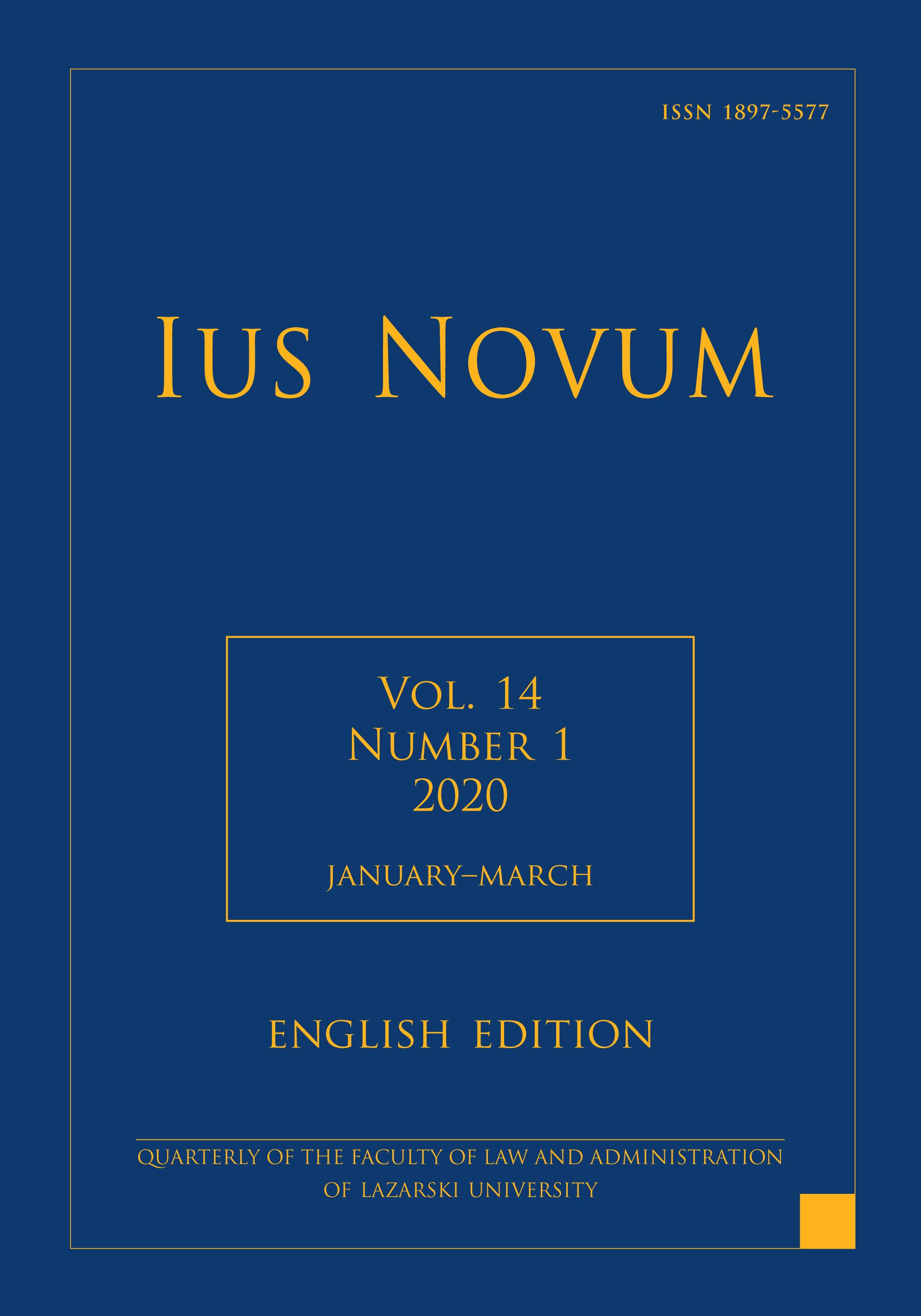Abstract
The article presents an analysis of the Supreme Court Criminal Chamber resolutions and rulings adopted in the course of interpreting statutes or provisions that raised doubts and caused discrepancies in case law and were referred for examination to the Supreme Court by appellate courts or the First President of the Supreme Court. These concerned: a negative factor for awarding an aggregated penalty in the form of a penalty of deprivation of liberty for an offence committed in the course of serving a penalty (Article 85 § 3 CC); limitation of penalty imposition in the case of cumulative legal classification of an act (Article 101 § 1 CC); the concept of a consequence as a feature of a prohibited act from which the running of limitation starts (Article 110 § 3 CC); evasion of the obligation of maintenance in the context of a legal act that is more favourable to a perpetrator (Article 209 § 1 CC); a concept of an employee in the case of malicious and persistent infringement of an employee’s rights resulting from the labour relationship or social insurance (Article 218 § 1a CC); and the type of dominant activity concerning retail trading jointly in newspapers, public transport tickets, tobacco products, and lottery and betting tickets (Article 6 para. 1(6) of the Act of 10 January 2018 on the limitation of retail business on Sundays, public holidays and some other days).
